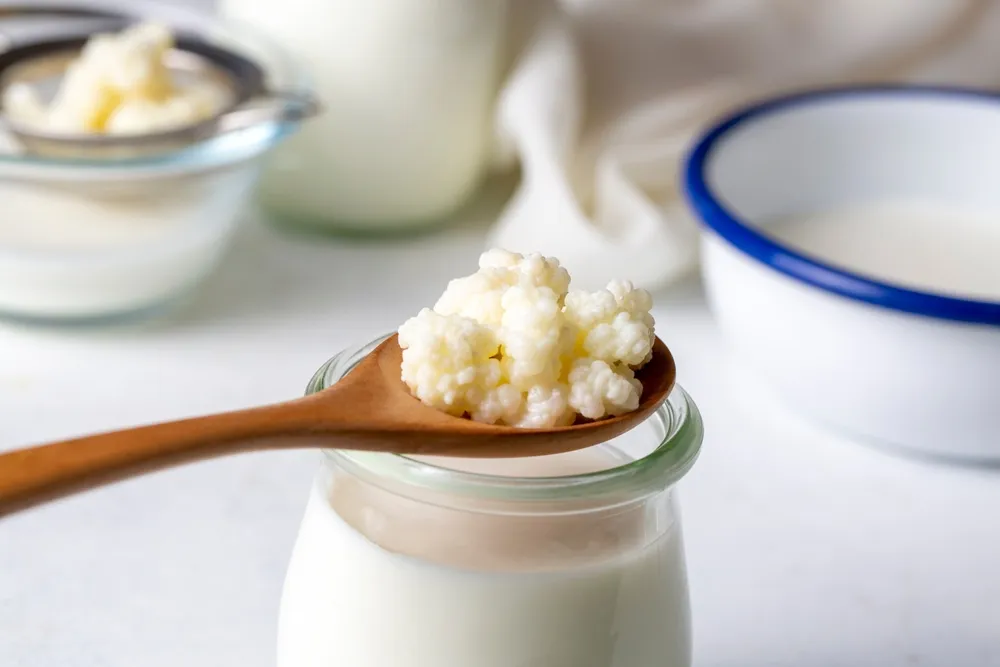Have you ever wondered about kefir, that tangy, yogurt-like drink you might have seen but never tried? Well, it extends beyond a refreshing beverage; packed with health benefits waiting to be explored. So, let’s take a closer look together at this traditional drink, understanding its health secrets and how it could be a simple yet impactful addition to your daily routine.

Kefir is a tangy, slightly carbonated, fermented dairy drink, like yogurt but with a thinner consistency. Originating from the Caucasus Mountains, it's made by fermenting milk with kefir grains for about 24-48 hours, yielding a beverage rich in probiotics and nutrients.
There are many different types of kefir available, each with its unique taste and benefits.
Making kefir is a fascinating process that combines traditional methods with microbiological magic. Here's a closer look at how this nutritious beverage is made.
Kefir is rich in essential nutrients, making it a wholesome addition to any diet. Research estimates that traditional milk kefir consists of around:
Kefir also contains several vitamins and minerals, including:
Kefir's probiotics are particularly beneficial for the digestive system, aiding in maintaining a healthy gut flora balance. This can alleviate common digestive issues and improve overall gut health.
Kefir stands out in its nutritional content. Rich in protein, B vitamins, potassium, and calcium, it's also a good source of vitamin K2 and magnesium, vital for overall health. This composition makes kefir an excellent addition to any diet, offering a range of health benefits.
Yes, it is! Adding kefir to your daily diet is a great way to enjoy its health benefits. Start with small amounts and gradually increase to avoid digestive discomfort.
While kefir is generally safe, people with lactose intolerance or milk allergies should be cautious. It's also advisable to choose plain, unsweetened varieties if you're monitoring your sugar intake.
Kefir is incredibly versatile. Enjoy it as a refreshing drink, blend it into smoothies, or use it as a yogurt substitute in recipes. You can also add it to your breakfast cereal for a fresh and healthy start to the day.
To sum up, kefir is a nutritious addition to your lifestyle with a host of health benefits. And those who are looking to incorporate kefir into their diet, check out the Amaltaas range of authentic kefir products, where quality meets the goodness of kefir!